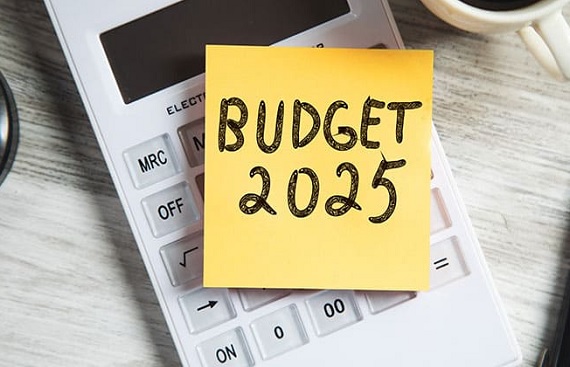Budget 2025-26: Gaming Industry Calls for Rational Tax Policies
By
siliconindia | Thursday, 16 January 2025, 09:48:56 AM IST

India's real-money gaming companies have demanded rational tax policies and have also asked for redressal of taxation issues in the Union Budget 2025 to sustain the sector's growth.
Finance minister Nirmala Sitharaman will present the budget for the financial year 2025-26 on February 1.
"In the Union Budget 2025-26, we urge the government to prioritize rational tax policies that could enhance the sector's contribution to the economy while ensuring player protection and responsible gaming practices", said Anuraag Saxena, chief executive of E-Gaming Federation (EGF), a skill-gaming industry body.
"With the potential to contribute Rs 75,000 crore in GST over the next five years, the online gaming industry is a crucial catalyst for economic advancement," he said.
Saxena said while the recent goods and services tax (GST) reforms have provided much-needed clarity to the industry, the retrospective tax demands have "introduced uncertainty and adversely impacted investor confidence", thereby creating challenges for the sector's growth.
EGF, which speaks for India's top online rummy and poker operators, including Games24x7, Head Digital Works, and Junglee Games, said it also presented a representation to the finance ministry during pre-budget consultations.
"The sector continues to face a precarious future due to uncertainties surrounding taxation", Saxena said in the December submission.
He also added that any potential solution must not lead to revenue loss to the exchequer and that the revenue department issuing retrospective tax notices to real-money gaming companies can lead to the shutdown of legitimate businesses.
He also emphasized the point that formulating any possible solution must not lead to revenue loss to the exchequer, and such revenue loss might occur if legitimate businesses get shut down based on retrospective tax notices issued by the revenue department to the companies engaged in real-money gaming.
Also read: GST collections from real-money gaming jump 412% to Rs 6,909 cr in 6 months under new tax rates, says FM Sitharaman
This, however, was not enough, as the finance ministry warned in Parliament in December 2023 that as many as 71 show-cause notices were issued to real-money gaming companies for alleged GST evasion amounting to Rs 1.12 lakh crore, excluding interest and penalties, for the period before October 1, 2023.
On January 10, the Supreme Court granted a stay on these notices till the final disposal of the cases. The matter is now listed for final hearing on March 18.
Roland Landers, chief executive of skill-gaming industry body All India Gaming Federation (AIGF), also echoed similar sentiments.
"We hope that the government will think of bringing the GST rate down and retrospection, which would provide much-needed clarity to continue further growth and innovation", he said.
"With further effort, we envision a future where more Indian developers and gaming studios create world-class games and content, and help make India a global leader in gaming",
Deepak Gullapalli, founder of skill-based gaming firm Head Digital Works, said the upcoming budget might also rationalize TDS norms on winnings from these real-money games by bringing them at par with other sectors.
"That would be great for consumers. It will allow them to use the money better because of increased liquidity, while also ensuring that one is not deviating from slightly lower TDS rates", he said.
The government in Budget 2023 brought forth changes related to TDS such as removal of the threshold amount of Rs 10,000 for winnings and introduced a new mechanism to compute TDS on net winnings. Net winnings is calculated by taking away the aggregate amount withdrawn in the financial year from the total amount deposited in the year. It also considers the amount that has already borne TDS during the current financial year and the deposit balance as on April 1 of the financial year.
WinZO Games co-founder Paavan Nanda also requested for regulation and taxation to reflect Prime Minister Narendra Modi’s vision to attract a large share of global FDI (foreign direct investment) to the sector. This would help drive investments in developing and exporting high-quality games, while also building the right talent for the sector, he said.
According to a report by the gaming and interactive media venture fund Lumikai, the Indian gaming industry has reported revenues of $3.8 billion for the financial year 2024, up 22.6 percent from $3.1 billion in FY23. The real-money gaming segment accounted for about $2.4 billion of the $3.8 billion revenue.
The report added that the industry is expected to reach $9.2 billion in revenue by FY29, growing at a 20 percent CAGR over the next five years.
Read More News :
CSIR-NIScPR Inaugurates International Conference on STI Indicators
DFS Secretary Reviews Financial Inclusion, Bank Expansion Plans


.jpg)
